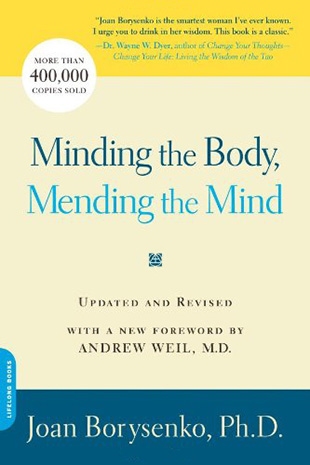"The one factor that has links to every determinant of health, other than hardwired genetic constitution, is, of course, behavior. We decide about our health habits — whether we exercise, what we eat, whether we smoke or drink. Just as important, our minds have the ability to spin out endless imaginings that are quite real to the body. We can believe them or not. Although it would be a gross oversimplification to say that your thinking creates your health, it certainly plays a significant role. But remember that genetics, environment, and health habits are important — and often determining factors — in the equation. The good news is that regardless of what causes illness, learning to use your mind wisely can improve your health, reduce your stress, and help you to become a happier and more compassionate human being.
"Ultimately, feeling guilty gives us a false sense of control: 'If I can just eat this special diet, do this meditation, or affirm something more positive in my life, then I will heal.' Although all of those things can indeed be helpful, none of them comes with a guarantee. As theologian Elaine Pagels once pointed out, from the beginning of time people have preferred guilt to helplessness. That way they can feel in control. Transformational coping — which really can have positive effects on health — means becoming mature and flexible enough to deal with life's inherent uncertainty. It doesn't mean that everything will always go the way that you hoped for. It means that you'll be able to grow in wisdom and compassion from every life circumstance.
"Perhaps the greatest inspiration in my life is those patients who taught me that healing is more than curing. Although almost every person wants to be healthy, particularly when they've lost their health, the truth is that life is unpredictable. People with low stress, great health habits, and optimistic thinking still fall ill. Curing is great if we can get it, and thanks to allopathic medicine, integrative medicine, and the mind/body connection we have a lot of hope in that regard. But healing can happen even in the process of dying. I cannot tell you how many of my patients with cancer, AIDS, or other life-threatening diseases have told me that they wouldn't trade what they had learned about life and themselves even though they were facing death.
"Ultimately minding the body and mending the mind have more to do with wholeness — healing — than with curing. To be whole means to be a flexible adventurer, ready to meet life's challenges with engagement and curiosity. It means feeling a sense of connection to the whole of life — to other people, to new ideas, to the world around us. It means thinking less about 'I, me, and mine' and more about how we are all interconnected in a great web of life. It means caring for others and doing what we can to make the world a better place. It means recognizing that happiness arises within us independent of any external cause and removing the obstructions to that inner peace and happiness that are our birthright as human beings.
"Whether you are healthy or sick, young or old, rich or poor, you can still be happy and optimize your physical function. That's what minding the body and mending the mind are all about."
